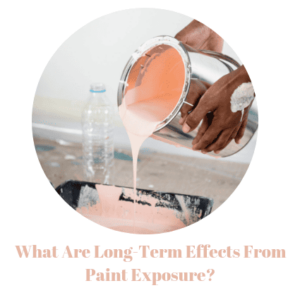What Is Painter’s Dementia?
 On a daily basis, human beings strive to improve the conditions of their residences so that they can look better. They clean, paint, and even do some gardening around the property.
On a daily basis, human beings strive to improve the conditions of their residences so that they can look better. They clean, paint, and even do some gardening around the property.
Painting is notably one of the home improvement techniques that is most commonly used. It not only enhances the general condition of a home, but also the look of it.
In this case, painters are imperative to getting the job done. However, when painting, a person may be exposed to chemical vapors, which can cause short-term and long-term health hazards.
One long-term effect of being in contact with paint is dementia, which is the loss of memory and other mental abilities that interfere with day to day personal activities.
There are several types of dementia, including Huntington’s disease, mixed dementia, Creutzfeldt-Jakob disease, Frontotemporal dementia, and others. What can cause some of these problems is exposure to toxic chemicals, like those used in the manufacturing of paints.
How Are These Health Conditions Acquired?
These hazards vary depending on the degree of exposure, the type of paint being used, the route of exposure, how toxic the paint is, and how the paint interacts with other chemicals.
There are also individual differences like heredity, age, body size, drinking, smoking, allergies, sensitivities, or a history of exposure to toxic chemicals.
 Usually, the exposure may be through inhaling the mists that paint sprays emit, skin contact, or even through ingestion. Unfortunately, most cases of exposure occur through skin absorption or eye contact.
Usually, the exposure may be through inhaling the mists that paint sprays emit, skin contact, or even through ingestion. Unfortunately, most cases of exposure occur through skin absorption or eye contact.
Once the chemicals are assimilated into the body, they move through the bloodstream, reaching vital organs like the lungs, kidneys, liver, and even the nervous system.
Chronic exposure can lead to dire implications for one’s health. Although they may take years to show up, once they do, these effects are usually permanent. Let’s look at the long-term health effects of paint exposure.
Long Term Health Effects Of Paint Exposure
A recent study, carried out by the OSHA (occupational safety and health administration), revealed that workers who are consistently exposed to high levels of paint mists during their lifetime suffered brain impairments (like dementia), which lasted for years. Workers eventually had problems with memory exercises, and also a lack of visual attention.
Another long-term effect to paint exposure is lung cancer, associated with inhaling spray paints. Other conditions connected to the lungs include wheezing, shortness of breath, and chronic coughing.
When exposed to the skin, paint can cause skin irritation and even worse, skin cancer. It can also have a long-term effect on the nervous system. This may include irritability, nervousness, sleeplessness, tremors, or even loss of balance and coordination.
Lastly, paint exposure can have an effect on the reproductive system. When a male is exposed, the solvents can damage and/or reduce the number of sperm cells. In a female, exposure can lead to irregularities in menstruation, miscarriage, or damage to the ovum and fetus.
Saving Workers From These Ordeals
As always, prevention is extremely important, and safety measures should be taught to painters so that their lives won’t be affected by these dangerous health conditions.
Painters should seek fresh air once a headache, dizziness, or even nausea starts, when working with paint. The lids of the containers should always be closed when not in use.
Protective gear should always be worn during the handling of chemicals. The hands and body should always be properly washed after the painting process. Also, the working area should have a free flow of fresh air.
Lastly, there are some first aid tips that should be followed for paint exposure. When the paint gets in contact with the skin, wash your skin with soap and water.
If it gets in your eyes, rinse your eyes for about 20 minutes with running water. In case of ingestion, drink water or milk, if it was a small amount. Otherwise, you should go straight to the hospital.
If you want to learn more about how to get rid of paint smell, take a look at our guide.
Conclusion
To conclude, everyone should consider buying paints that have less or no effect on their health and surroundings. Stay safe by using the protective measures we’ve discussed above. Prevention of possible damaging health effects is the most important thing to consider when painting a home or other dwelling.

Comments
Post a Comment